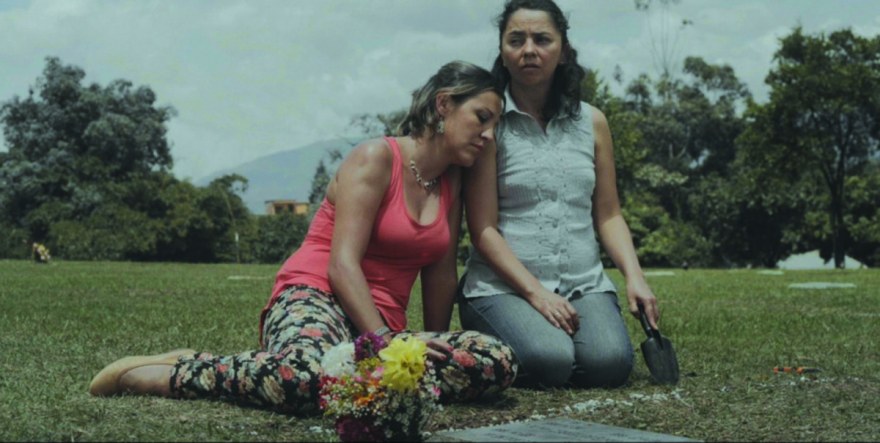Night cap with Como la Primera Vez (Like the First Time)
Interview with Yennifer Uribe Alzate, director of Como la Primera Vez (Like the First Time)
What were you seeking to explore in Rosa’s relationship with Dalia? Sexuality? Love? Empowerment?
My intention was that Rosa understands that she had an intimacy of her own, which she had never explored, independently of her husband, her son, her home duties and her environment. I wanted Rosa to recognize and learn about it. I can say that is empowerment. That way, Rosa can feel love, desire, or experiment new forms of sexuality, but always with self-awareness. This empowerment allows Rosa to challenge her destiny, her daily life from her own intimacy.
Is there a particular way you would like the audience to interpret the ending? If so, how do you see it?
Como la primera vez has an open ending, we do not know what will happen between Rosa and Dalia, and between Rosa and her husband, actually, I do not know either. The important thing is that after this experience, Rosa is not the same woman, she will never be the same woman and this is reflected in her daily life, in the way she lives it and builds it. Something has happened inside Rosa and this is what I wanted to suggest with the ending.
How are the relationships between the two women and between Rosa and her husband at the end of the film?
Rosa and Dalia gradually build a relationship based on mutual understanding, confidence, company, empathy, in which femininity is an element that unites, that generates confidence, companionship, affection, intimacy. The relationship with her husband is worn out by the routine and the shortage of details that feeds a couple’s everyday life: there is a lack of respect, love, understanding and freedom. In this relationship there is a hierarchy that annuls Rosa’s personality, opinions and feelings.
Would you say beauty salons are common places for women to get together (socially) in Colombia?
Yes, I think that the beauty salons are a place for social interaction: they are places where women can meet, speak about men, lovers, pleasures; tell secrets, concerns, dreams. In beauty salons, women find confidence and complicity. They are also places to speak about soap operas, news, music, clothes, etc., matters of everyday life. I think that in beauty salons, at least in Colombia, it is possible to find minimalist expressions of society.
Any cinematic coups de cœur in the past year you’d like to tell us about?
Last year I discovered an Italian filmmaker who has developed his work in the United States, Roberto Minervini. His films were a revelation for me, especially Stop the Pounding Heart (2013). This movie helps me confirm why I love cinema and why I want to continue telling stories. I really liked the way he has managed to capture the subtle nuances of reality: the gestures, the looks, the desire, the doubts. The subtlety of the relationships between the characters and the mise en scène are admirable. Last year I was also impressed by Arabian Nights Vol I, II, III (2015), by the Portuguese filmmaker Miguel Gomes; O futebol (2015) by Sergio Oksman and Wounded Night (2015) by the Colombian director Nicolás Rincón.
If you’ve already been to Clermont-Ferrand, could you share with us an anecdote or story from the festival? If not, what are your expectations for this year?
Como la primera vez is my first short film and this is my first time at the festival. It’s very exciting to me to be here because it is a great opportunity and every filmmaker wants to show their short film at Clermont-Ferrand: meeting and sharing with directors from around the world will be a rich experience, and I will have the chance to discover different perceptions about my work.
Como la Primera Vez is being shown in International Competition I13.









